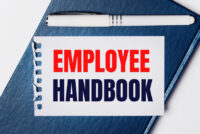More of Your Discrimination Cases Headed for Trial in the New Year? We Think So!
A case decided on December 5 by the U.S. 11th Circuit Court of Appeals—a sister federal appeals court to our 5th Circuit, which covers Texas—looks like it is being teed up for review by the Supreme Court of the United States (SCOTUS). The issue: What does it take to get a case dismissed before trial? […]












